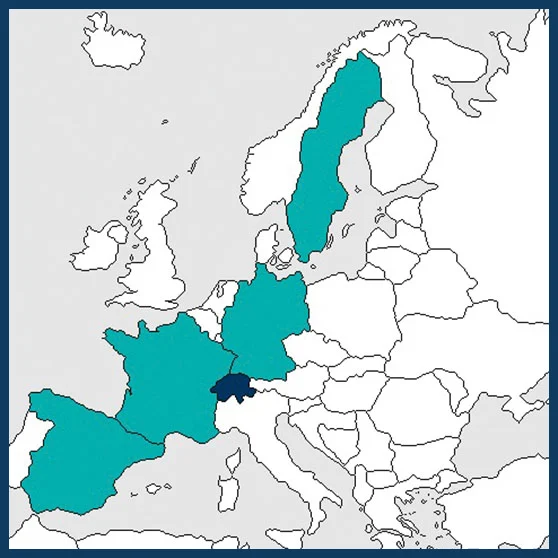12-2016 to 12-2019
€ 1,446,965
Prof. Dr. Marcel van der Heijden
marcel.vanderheijden@agroscope.admin.ch
Agroscope, Zürich, SWITZERLAND (Coordinator)
INRA, Dijon, FRANCE
Freie Universität Berlin, Berlin, GERMANY
Rey Juan Carlos University, Móstoles, SPAIN
Swedish University of Agricultural Sciences, Uppsala, SWEDEN

Biological diversity is of pivotal importance for maintaining ecosystem functioning. While most studies on this topic have targeted aboveground communities, a large part of biodiversity is literally hidden below ground. Thus, the consequences of soil biodiversity losses for ecosystem functioning are still poorly understood. This is particularly true in agro-ecosystems, where soil biodiversity declines upon land use intensification are commonly reported. We have previously shown that belowground diversity is key for maintaining multiple ecosystem functions (i.e. multi-functionality) in model ecosystems, and those particular functional groups of soil biota affect ecosystem sustainability by reducing greenhouse gas emissions, immobilising nutrients and affecting nutrient losses. Here we test, for the first time, whether agro-ecosystem diversification can promote soil biodiversity and the deli- very of beneficial ecosystem services across Europe. The main hypothesis of the project is that increased plant diversity will promote belowground biodiversity and related ecosystem services.
Digging-Deeper’s main objectives are to
1. Quantify the impact of land use/agricultural practices, in particular those increasing plant diversity, on soil communities, ecosystem functions and services.
2.Determine the role of soil diversity and biological interactions for multi-functionality of European agro-ecosystems.
3.Assess the impacts of climate change on the provision of ecosystem services by agro-ecosystems from different climatic zones, management practices and soil biodiversity levels.
4.Identify innovative land management practices that maximise the delivery of multiple ecosystem services delivered by soil biota.
To address these objectives, the Digging-Deeper project will establish a pan- European network (from Sweden to Spain) of 250 agricultural fields that vary in aboveground diversity. This network includes sites from low to high above ground diversity, as well as field experiments where the diversity of agro-ecosystems is manipulated in time or space (e.g. through crop rotation, cover crops, or inter- cropping). Links between below-ground diversity and number of ecosystem functions will be assessed: plant yield, nutrient cycling, soil aggregation, soil carbon sequestration and soil nitrous oxide sink will be evaluated as acting surrogates of essential services in agro-ecosystems.
Together with stakeholders and policy makers, the project will develop a theoretical and applied framework to identify the impact of agricultural practices on the yield, biodiversity and sustainability of European agro-ecosystems. The results will be implemented at the national (through meetings, press releases and publications targeting farmers, advisors and policy makers) and European (through a policy paper and communications to policy makers) levels.